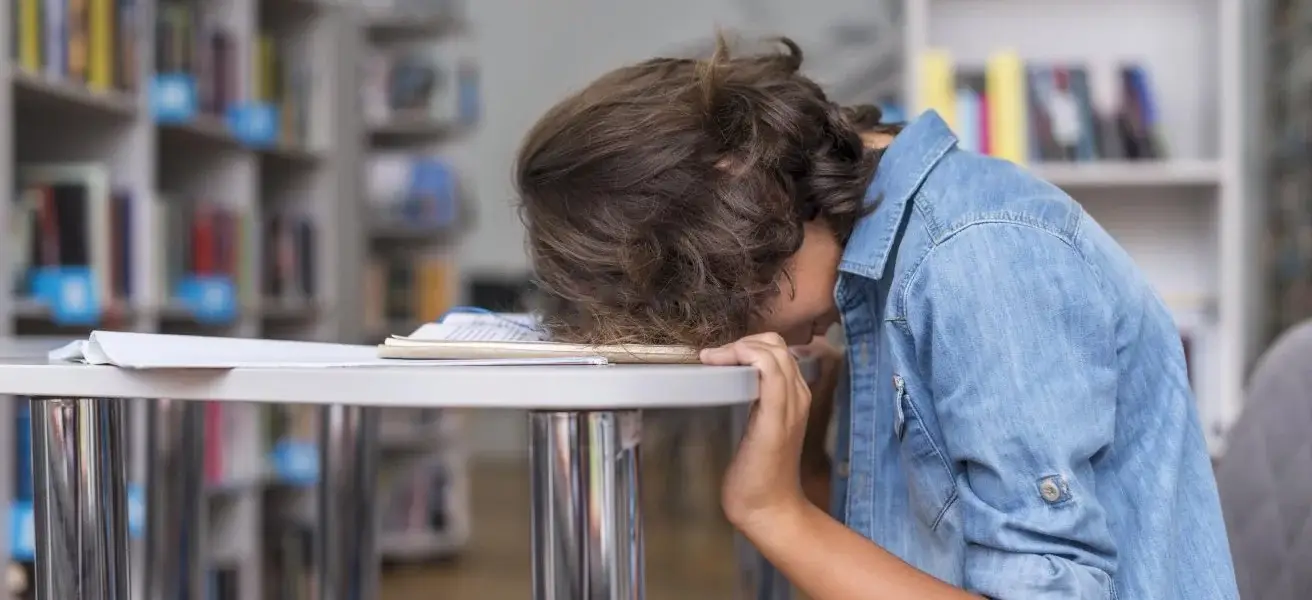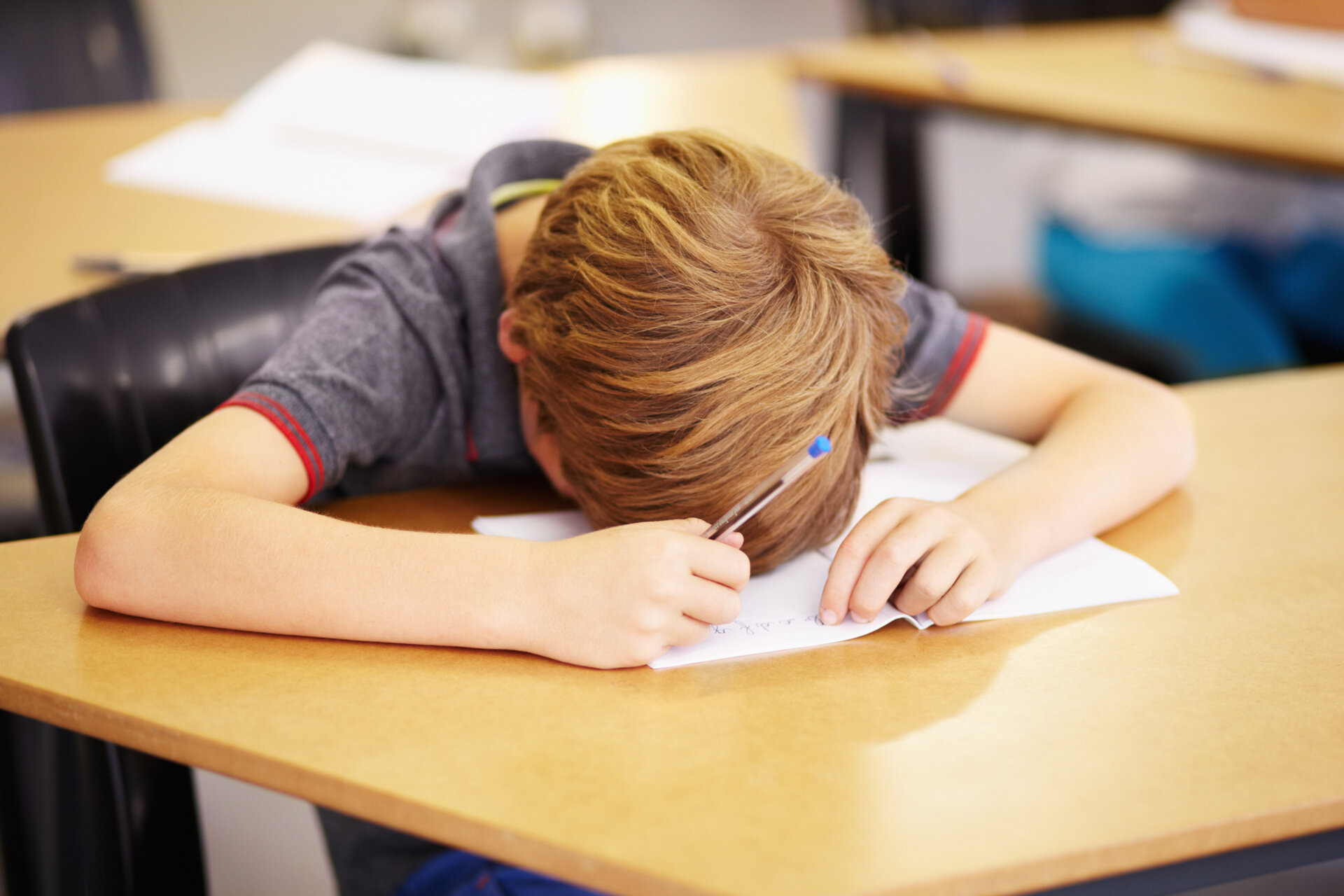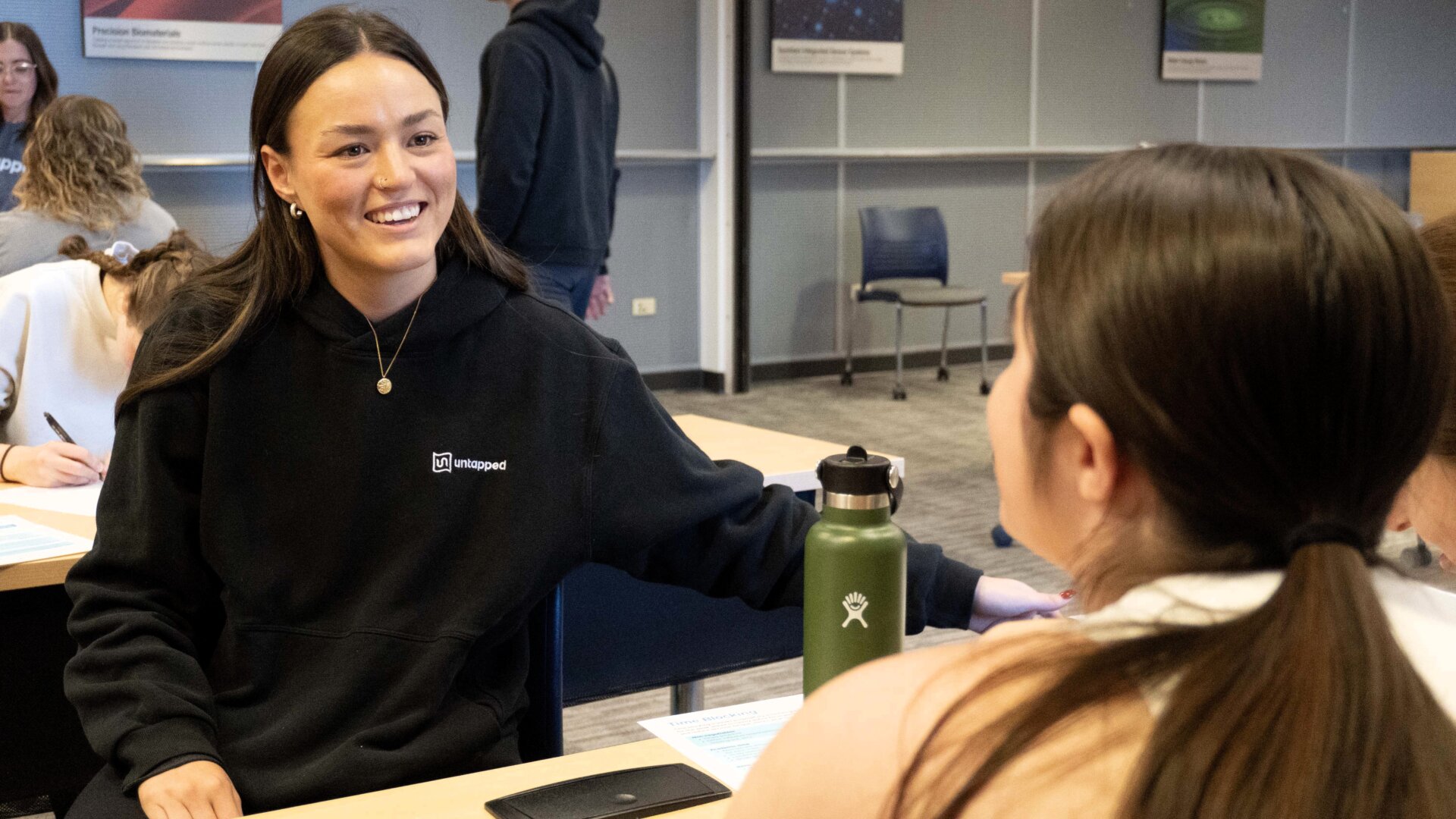Your kid being defensive can result from a variety of reasons. You just asked if they had finished all of their homework for the night. In your mind, that was a pretty innocent and straightforward question. However, it might as well have been a battle cry based on the response you got:
Oh my GOD I would be done by now if you weren’t looking over my shoulder every 2 minutes and stressing me out, can you just leave me alone?

This was not a fight you had signed up for, you had no interest in being combative, you were really just trying to figure out if eating dinner as a family was feasible…
Children who have ADHD or other executive function challenges are often more defensive, especially around accountability, than many of their peers. That being said, you may have a middle schooler or high schooler with no diagnoses, but you’ve recently witnessed a drastic shift in their behavior and attitude around accountability. Defensiveness can rear its ugly head in teens as they face the obstacles of hormones, high school, and so much more.
As people who hold students with ADHD accountable for a living, we still sometimes struggle to crack the code of how to hold them accountable in ways they’ll accept. In an ideal world, we’re able to do it in a way where they ultimately realize how valuable accountability is to their growth and well-being. After thousands of hours working with defensive teenagers, here are our thoughts on navigating that defensiveness and successfully holding them accountable.
The ADHD Accountability Challenge:
Accountability isn’t about pointing fingers or assigning blame. It’s about all of us learning how to receive constructive feedback to help us achieve our goals. However, to those with ADHD, accountability seems to be much more. A simple redirection can feel like an attack on our character. This, coupled with the fact that the typical child with ADHD receives 20,000 more negative comments than positive ones by 10 years old (then the rate of negativity increases), makes holding these kids accountable very difficult.

How to Build Accountability Skills:
This process begins with recognizing each child’s unique needs and strengths to create a supportive environment that encourages progress. By setting clear, realistic goals and establishing consistent routines, parents and educators can provide the structure children with ADHD need to discipline their gifts. These strategies help manage immediate tasks and lay the foundation for lifelong skills in self-management and responsibility. Let’s get into how we can effectively guide students to build these accountability skills.
Set Clear Goals and Expectations
People with ADHD struggle with the abstract and this can lead to them being defensive. Unless expectations are crystal clear, we will argue with ourselves or others about what to do and how to do it. These arguments produce nothing but wasted time and energy. To combat this, parents, educators, coaches—and any other supporters—must ensure that goals, expectations, and accountability checkpoints are clear and communicated early and often.

This process involves more than just stating what needs to be done; it’s about collaborating with the child to establish clear, achievable, and meaningful goals when possible. (Brushing their teeth may not always be meaningful in the moment, but it is obviously necessary!)
Parent Worksheet: Goal SettingSetting Goals and Expectation Reminders:
- Specificity in Goals: Goals should be specific enough that there’s no ambiguity about what constitutes success. For example, rather than saying, “study for your math test,” a more specific goal would be: “to study for the test, review five math problems from section 2.3.” This specificity helps children understand what is expected, making it easier to focus and less likely to be overwhelmed.
- Measurable and Time-Bound: Goals should have a clear metric for success and a timeframe. This could mean setting a goal to read a certain number of pages each night with a completion target by the end of the week. Having measurable goals with deadlines helps children with ADHD stay on track, and it also provides a tangible sense of accomplishment once the goal is achieved.
- Visualizing Goals: For many of us, visual aids can be incredibly helpful. Creating a visual goal chart or a progress tracker that they can mark off can provide a constant, tangible reminder of what they’re working towards. This can be particularly motivating and help reinforce the habit of working towards and achieving the goals we’ve set.
But what happens if the goals we’ve set aren’t met? Depending on the scenario, there are a few ways to tackle this.
For example, if you and your child have come to an agreement about earning time to play video games IF they take the dog on a 30-minute walk, it’s pretty cut and dry. Expectation met = reward earned, expectation not met = missed chance to earn video game playing time.
However, there are times when we, as the adults, need to be a little less rigid and adapt in order to help our kids succeed.
For example: your student NEVER writes anything down in their planner. They forget it in their locker, they say their backpack is too full with all their other notebooks and binders, it’s as blank as the day they got it. You’ve been having the same fight for a year with a 0% success rate. What are other ways of achieving that root goal of your student (and you) knowing what schoolwork they have to do and by when? Test out having them type class announcements, assignments, etc. into their notes app (if that’s not against a school phone policy). Figure out which teachers keep their online class portals up to date so the information is always available to students. Regardless, take a step back and say, “The idea of a planner is not working. What else can we try?”
Build Routines
Implementing structured routines at home and in the classroom provides predictability. This helps children with ADHD understand what’s expected of them, reducing anxiety and making it easier to focus on tasks. Here’s how these routines foster accountability:

Building Reminders for Routines
- Consistency and Predictability: Structured routines establish a consistent flow of activities, reassuring for children with ADHD. Knowing what to expect at each point of the day can significantly reduce anxiety and decision fatigue, making it easier for them to engage with and complete tasks.
- Clear Expectations: With a routine in place, children understand what is expected of them and when and are less likely to be defensive. For example, if homework time is set for after dinner each day, this expectation becomes ingrained, and children are more likely to stick to it and recognize it as their responsibility.
- Task Management: Structured routines help break the day into manageable segments, allowing children to focus on one task at a time. This segmentation is particularly beneficial for children with ADHD who may struggle with time perception, planning, and task initiation. It teaches them how to approach tasks systematically, a key component of accountability.
Incorporating structured routines into the daily lives of children with ADHD not only provides them with the external organization they might lack but also teaches them internal discipline and responsibility. Over time, these routines become internalized, forming the foundation for lifelong accountability skills.
Enhance Self-Advocacy Skills
Empowering children with ADHD to advocate for themselves is a crucial step in their development. This skill ensures they can effectively communicate their needs and navigate challenges with greater autonomy. Here’s how parents and educators can actively support this skill-building:
- Fostering Open Communication: Create a safe and open environment where children feel comfortable sharing their thoughts and feelings. Regularly check in with them to discuss their day-to-day experiences and any challenges they’re facing.
- Practicing Through Role-Play: Engage in role-play exercises that simulate real-life situations where they might need help, ask questions, or express a concern. This could include practicing approaching a teacher with a question about an assignment or expressing a need for assistance or clarification.
- Navigating Support Systems: Teach children about the different types of support available within the school and the broader community. This includes understanding who they can turn to for different kinds of help. Empower them to seek support when needed, whether it’s asking for extra time on an assignment or utilizing resources like a school counselor or a tutor.
By strengthening self-advocacy skills, children with ADHD can gain the confidence and tools needed to communicate their needs effectively, leading to greater independence and success in managing their daily lives and long-term goals.
Positive Reinforcement
Fostering accountability for those with ADHD requires a blend of patience, understanding, and support.
Positive Reinforcement Reminders:
- Find ways to celebrate positive (even minor) behaviors to boost confidence and motivation.
- Give specific praise acknowledging effort and progress, such as “I noticed how hard you worked on your math homework today. Great job sticking with it!”
- Use a reward system for consistent positive behaviors, including extra time with friends, a favorite activity, or a small treat.
Modeling Accountability
For children with ADHD, witnessing parents and caregivers receive accountability is impactful because they often learn more from observing actions than from listening to words. By observing adults take responsibility for their actions and decisions, these children gain real-life examples of how accountability impacts them in reaching their goals and opening more freedom.

Modeling Reminders:
- Demonstrate responsible behavior in your daily actions, showing how tasks are managed and commitments are met.
- Share stories of overcoming challenges or correcting mistakes, emphasizing the learning process. Discuss how you accepted accountability even when it was uncomfortable.
- Discuss how someone the child looks up to accepts accountability. The best athletes in the world have a team of people around them, helping them thrive. Celebrities have personal trainers, publicists, managers, etc. The most successful people have the most help. Often, our kids don’t understand this.
Parenting a child who struggles with executive function can be overwhelming, but you don’t have to navigate this journey alone. Let Untapped help!
For More:
Accountability Nagging and Exercise
Caring, Control, and Accountability
Resilience Begins with Responsibility





